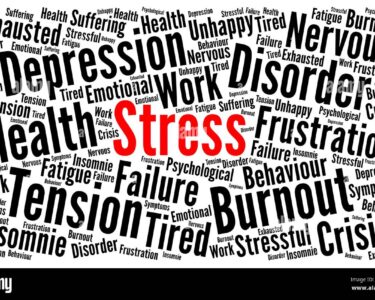HEALTH AND MEDICINE EDUCATION
Health and Medicine Education: Building a Strong Foundation for a Healthy Future
Introduction
In an ever-evolving world, health and medicine education play a crucial role in shaping the future of healthcare professionals. With the rapid advancements in medical science and technology, it is imperative to equip aspiring healthcare practitioners with the knowledge and skills necessary to provide quality care. This article delves into the importance of health and medicine education, its key components, and the benefits it offers to both individuals and society.
Table of Contents
- Understanding the Significance of Health and Medicine Education
- Key Components of Health and Medicine Education
- The Role of Practical Training in Health and Medicine Education
- Nurturing Empathy and Communication Skills
- Fostering Critical Thinking and Problem-Solving Abilities
- Embracing Interdisciplinary Approaches in Healthcare Education
- The Impact of Technology on Health and Medicine Education
- Ensuring Ethical Practices and Professionalism
- Adapting to Cultural Sensitivities in Healthcare
- Promoting Lifelong Learning and Continuing Education
- The Benefits of Health and Medicine Education
- Conclusion
- FAQs
Understanding the Significance of Health and Medicine Education
Health and medicine education serves as the foundation for aspiring healthcare professionals, enabling them to acquire the knowledge, skills, and attitudes required to provide competent care. It encompasses a comprehensive understanding of medical sciences, clinical practices, and ethical principles. By imparting this education, we empower individuals to make informed decisions, promote healthy lifestyles, and contribute to the betterment of society.
Key Components of Health and Medicine Education
1. Theoretical Knowledge
Theoretical knowledge forms the cornerstone of health and medicine education. It encompasses subjects like anatomy, physiology, pharmacology, pathology, and biochemistry, providing students with a solid understanding of the human body and its functions. This knowledge base serves as a crucial platform for clinical decision-making and evidence-based practice.
2. Practical Training
Practical training is an integral component of health and medicine education. Through hands-on experiences, students develop clinical skills, learn diagnostic techniques, and gain exposure to real-life medical scenarios. This training is typically conducted in simulated environments or healthcare facilities under the supervision of experienced professionals.
3. Empathy and Communication Skills
Effective healthcare delivery extends beyond medical expertise. Health and medicine education emphasizes the development of empathy and strong communication skills. Healthcare professionals must be able to connect with patients, understand their concerns, and provide compassionate care. These skills contribute to building trust and establishing therapeutic relationships.
4. Critical Thinking and Problem-Solving Abilities
Healthcare professionals often face complex and challenging situations that require critical thinking and problem-solving abilities. Health and medicine education encourages students to think analytically, consider multiple perspectives, and apply evidence-based approaches to make well-informed decisions. These skills are vital for accurate diagnosis, treatment planning, and patient management.
5. Interdisciplinary Approaches in Healthcare
Collaboration among healthcare professionals from different disciplines is crucial for delivering comprehensive care. Health and medicine education promotes interdisciplinary learning, fostering an understanding of the roles and contributions of various healthcare providers. This approach encourages teamwork, enhances patient outcomes, and improves healthcare system efficiency.
6. The Impact of Technology on Health and Medicine Education
Advancements in technology have revolutionized the healthcare industry. Health and medicine education adapts to these changes by incorporating technological tools and resources into the curriculum. Students learn to navigate electronic medical records, utilize telemedicine platforms, and leverage innovative diagnostic and treatment modalities. This integration prepares them for the technologically advanced healthcare landscape.
7. Ensuring Ethical Practices and Professionalism
Ethical practices and professionalism are fundamental aspects of health and medicine education. Students are educated on ethical guidelines, patient confidentiality, and maintaining professional boundaries. They develop a sense of responsibility, integrity, and ethical decision-making, ensuring the provision of high-quality care while upholding patient rights and dignity.
8. Adapting to Cultural Sensitivities in Healthcare
Cultural diversity plays a significant role in healthcare. Health and medicine education emphasizes the importance of cultural sensitivity and competence. Students learn to respect and understand diverse cultural practices, beliefs, and values to provide patient-centered care. This inclusivity enhances patient satisfaction, trust, and overall healthcare outcomes.
9. Promoting Lifelong Learning and Continuing Education
Health and medicine education extends beyond formal training. It instills a culture of lifelong learning and encourages healthcare professionals to engage in continuous professional development. By staying updated with the latest research, advancements, and best practices, professionals can deliver optimal care and adapt to evolving healthcare landscapes.
The Benefits of Health and Medicine Education
Health and medicine education offers numerous benefits to individuals and society as a whole. Here are some key advantages:
-
Improved Patient Outcomes: Well-educated healthcare professionals are better equipped to diagnose, treat, and manage patients effectively, leading to improved health outcomes and reduced mortality rates.
-
Enhanced Healthcare Quality: Health and medicine education ensures that healthcare providers adhere to evidence-based practices, resulting in improved quality of care, patient safety, and overall healthcare system performance.
-
Addressing Healthcare Disparities: Education plays a vital role in addressing healthcare disparities by promoting equal access to healthcare services and bridging gaps in healthcare delivery across diverse populations.
-
Advancements in Medical Research: Education in health and medicine fuels advancements in medical research by nurturing a pool of knowledgeable professionals who contribute to groundbreaking discoveries and innovations.
-
Health Promotion and Disease Prevention: Education empowers individuals with knowledge about preventive measures, healthy lifestyle choices, and disease management, fostering a healthier population.
Conclusion
Health and medicine education is a vital component of building a strong foundation for a healthy future. By imparting theoretical knowledge, practical training, and essential skills, it equips healthcare professionals to deliver competent, compassionate, and patient-centered care. With a focus on ethical practices, cultural sensitivity, and interdisciplinary approaches, health and medicine education fosters a healthcare workforce capable of meeting the evolving needs of individuals and society.
FAQs
1. Is health and medicine education only for aspiring doctors?
No, health and medicine education encompasses various healthcare professions, including nursing, pharmacy, dentistry, and allied health fields. It caters to a wide range of healthcare professionals.
2. How long does health and medicine education typically take?
The duration of health and medicine education varies depending on the specific profession and the level of education pursued. It can range from several years for undergraduate programs to several more years for advanced degrees and specialization.
3. Are there any online resources available for health and medicine education?
Yes, there are several reputable online platforms and educational institutions that offer health and medicine courses, lectures, and resources. These resources can supplement traditional education or provide opportunities for continuous learning.
4. Can health and medicine education be pursued through distance learning?
Yes, distance learning options are available for certain aspects of health and medicine education, especially theoretical components. However, practical training and clinical experiences may require in-person or on-site participation.
5. How does health and medicine education contribute to career growth?
Health and medicine education forms the foundation for a successful healthcare career. It equips individuals with the necessary knowledge, skills, and qualifications to pursue various career paths within the healthcare industry, including clinical practice, research, education, and administration.
In conclusion, health and medicine education plays a pivotal role in shaping the future of healthcare. It empowers individuals with the knowledge, skills, and attitudes necessary to provide quality care, promote health, and address the diverse needs of individuals and communities. By investing in comprehensive health and medicine education, we lay the groundwork for a healthier and more sustainable future.





 Viesearch - The Human-curated Search Engine
Viesearch - The Human-curated Search Engine
